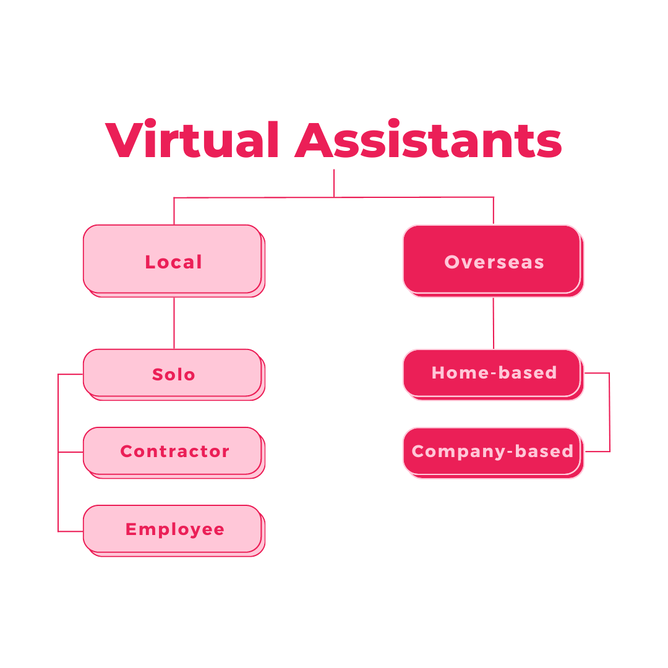As your to-do list grows alongside your business, the appeal of hiring a virtual assistant (VA) to reclaim some of your precious time becomes undeniable.
But in the vast sea of VAs, how do you find the one that's just right for you?
Let’s take a look at the key differences between local (think Australia and New Zealand) and overseas VAs, to help you make the best decision for your business.
First up, overseas virtual assistants
Hiring an overseas VA often means adapting to different time zones—a challenge that can be turned into an advantage if managed well. It necessitates clear, concise instructions, possibly accompanied by video guides (recorded on Loon or Berrycast), to bridge any communication gaps and ensure tasks are completed correctly.
The most enticing aspect of overseas VAs? Their affordability. With rates typically ranging from $3 to $10 per hour, they offer a budget-friendly option for task delegation. Whether they're working solo from home or are part of a larger VA company, overseas VAs provide a cost-efficient solution, albeit with a more reactive approach to task completion.
Opting for a VA from a company introduces a layer of management, including recruitment and issue resolution, at the cost of a management fee. On the flip side, home-based VAs might offer lower rates but require more direct management from you.
Next, local virtual assistants
Local VAs will be able to offer insights and process improvements, taking initiative without the need for micromanagement. However, this comes at a premium, reflecting the higher cost of living in their home countries.
Types of Local VAs:
Solo VAs: Independent and potentially more cost-effective, but may lack the support system for backup or diverse skill sets.
Contractor VAs: These VAs blend the independence of solo work with the backing of a VA company, offering a middle ground in terms of cost and availability.
Employee VAs: The most reliable in terms of availability and support, these VAs work directly for VA companies and, while pricier, come with the backing of an entire team.
One significant advantage of local VAs is their alignment with your time zone, facilitating real-time communication. This can be particularly important for tasks requiring immediate feedback.
Your decision
Deciding between a local and an overseas VA boils down to a balance of cost, communication preferences, and the nature of the tasks you need to delegate. There's no one-size-fits-all answer here; it's about what best complements your business operations, work style, and budget.
Hiring a virtual assistant is more than just offloading tasks; it’s about finding a partner who can integrate seamlessly into your business, contributing to its growth and freeing you to focus on the big picture.
Whether local or overseas, the right VA can transform the way you work, paving the path to a more efficient, balanced business operation.
Ready to chat more about working with our award-winning NZ team? Book a call with us here.



